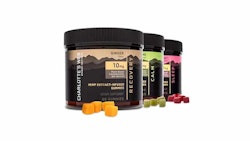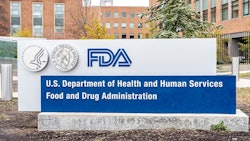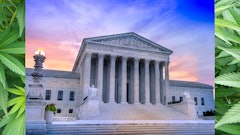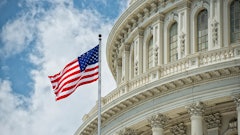
Between a report on consumer cannabidiol (CBD) products and a guidance document regarding clinical cannabis research, July has been a busy month for the U.S. Food and Drug Administration (FDA) in the hemp world.
But its latest document submitted to the White House Office of Management and Budget (OMB) for review, titled “Cannabidiol Enforcement Policy,” may be the launching point for regulations that the CBD industry has been asking for.
The FDA submitted the document to the OMB, which must approve new regulations from all federal agencies, for review July 22. The contents of the document have not yet been disclosed, though the title and description as “draft guidance for [the] industry” offer some clues.
“We’ve been hearing rumors that we’re going to get some good news—that it’s going to provide for formal enforcement discretion and provide a safe harbor for companies to sell CBD under strict regulatory guidelines,” says Jonathan Miller, general counsel for U.S. Hemp Roundtable. “We’ve heard other rumors that it’s just going to be the same old, same old—[the FDA] saying that ‘everything is illegal, but we’re going to focus on companies that make medical claims.’”
Jonathan Havens, a partner at Maryland-based law firm Saul Ewing Arnstein & Lehr LLP, speculates on a LinkedIn post that the enforcement policy may be claims-focused rather than laying out specific limits of CBD content in products.
“It’s hard to believe that the agency will back off completely from its ‘ingestibles aren’t permitted’ stance,” Havens writes.
If the document does indeed indicate the FDA is ready to regulate CBD in consumer products, Miller says the industry would embrace it.
A call for a CBD product regulatory framework has been rumbling throughout the industry since hemp’s legalization in 2018, from individual CBD companies declaring the lack of clarity has hurt revenues to industry groups making a push at local and federal levels.
The FDA has repeatedly reiterated that it needs more data on CBD safety before deciding how to regulate it despite the thousands of products already flooding the market. In an attempt to collect more data, the agency has re-opened an online docket for public feedback indefinitely. (It has so far gathered more than 4,500 comments.)
While the FDA’s current stance is that CBD is illegal, its actions thus far have consisted mostly of warning letters against CBD companies making health claims on their product labels or websites.
As the industry waits for the contents of the FDA’s latest document to be made public, which Miller says he anticipates could take weeks, a true regulatory framework for CBD is likely far off.
“My best guess is they’re going to give some guidance that will take immediate effect, and then discuss the plans for the regulatory process, which would probably take a few years,” Miller says. “But we’re grasping at straws here, because even some of our most powerful friends on the Hill haven’t seen this. We’re just holding our breath.


























